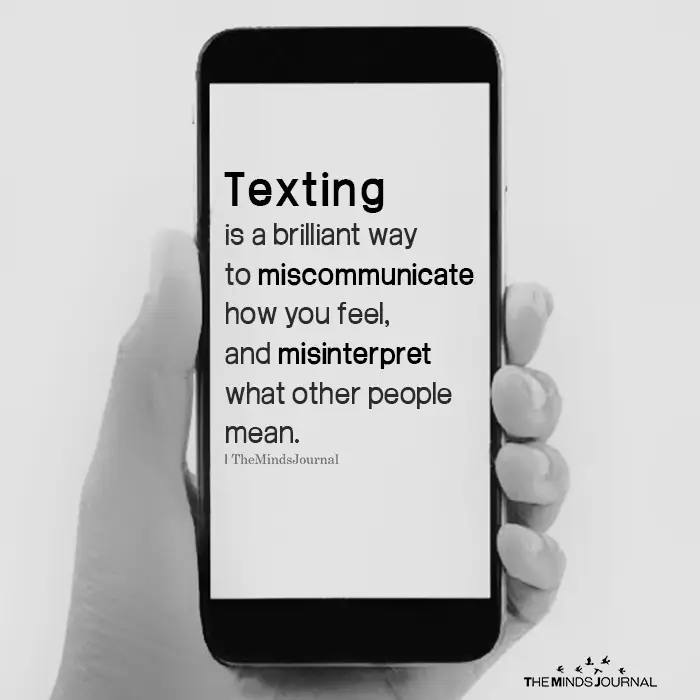Is fexting in a relationship good or bad? Millennials and Gen Z, glued to their smartphones find fighting over text much more convenient. But is it healthy?
In the realm of modern relationships, technology has transformed the way couples communicate. With the prevalence of smartphones, texting has become a primary mode of interaction.
However, the convenience and immediacy of texting can sometimes lead to misunderstandings, heated arguments, and conflicts within a relationship as nowadays people resort to “fexting” or fighting through text messages.
This article explores the phenomenon of “fexting,” and offers guidance on how couples can effectively navigate conflicts while preserving understanding and emotional connection.
Now you are familiar with the fexting definition, but is fexting in your relationship a good or bad idea? Before we answer that, let’s see why people prefer to fight over text:
- Time to Process: Texting allows individuals to take their time to process their thoughts and emotions before responding. It provides a sense of control and the opportunity to carefully craft their responses.
- Avoiding Confrontation: Some people may prefer fighting over text to avoid face-to-face confrontations or intense emotional exchanges. It provides a perceived sense of safety and distance.
- Expressing Themselves More Clearly: Writing allows individuals to express themselves more clearly and articulate their thoughts and feelings without interruptions or distractions.
- Creating a Record: Texting provides a written record of the conversation, which some people prefer as a way to refer back to specific points or hold the other person accountable.
- Emotional Regulation: Communicating through text allows individuals to regulate their emotions better and avoid escalating conflicts in the heat of the moment.
- Comfort Zone: Some people feel more comfortable and confident expressing their concerns or grievances through text, as they have time to choose their words carefully and feel less vulnerable.
- Avoiding Interruptions: Texting eliminates interruptions and allows both parties to express themselves fully without being interrupted by the other person.
- Avoiding Physical Confrontation: For individuals who dislike confrontations or physical altercations, texting provides a way to address conflicts without the fear of them escalating to a physical level.
- Preference for Written Communication: Some individuals simply prefer written communication as their primary mode of expressing thoughts and feelings, finding it more effective and efficient than verbal communication.
Read 7 Things Women Obsess About That Don’t Matter To Men
The Challenges of Fexting In A Relationship
Here’s why fexting in a relationship can do more harm than good:

1. Lack of Nonverbal Cues:
Text messages lack the nuances of facial expressions, body language, and tone of voice which are crucial for conveying emotions and intentions accurately. This absence can result in misinterpretations and escalate conflicts unnecessarily.
2. Miscommunication and Misunderstandings:
Without the benefit of immediate clarification, text messages can be easily misinterpreted. What might seem harmless or neutral to the sender may come across as aggressive or offensive to the recipient, leading to misunderstandings and hurt feelings.
3. Emotional Disconnection:
Engaging in heated arguments through text can create emotional distance between partners. The impersonal nature of texting may prevent couples from truly empathizing with each other, resolving conflicts, and strengthening their emotional bond.
4. Inability to Resolve Issues Effectively:
Lengthy text exchanges can make it challenging to address complex issues adequately. The back-and-forth nature of texting often results in fragmented conversations, making it difficult to reach a resolution or find common ground.
Read 26 Common Turn-offs In A Relationship: Avoid These Pitfalls To Create A Lasting Bond
Navigating Conflict in Fexting:
Although “fexting” has many challenges, as long as we have smartphones, “fexting” is here to stay. So, how can you use it to your advantage?
1. Choose the Right Time and Place:
Avoid engaging in intense or emotionally charged discussions through text. Instead, opt for face-to-face conversations or phone calls, where nonverbal cues can be observed and emotions can be expressed more accurately.
2. Clarify Intentions:
Text messages can be easily misinterpreted, so take extra care to clarify your intentions and emotions. Use emojis or explicit language to convey your tone and ensure your message is received as intended.
3. Pause and Reflect:
Before responding to a potentially contentious message, take a moment to pause and reflect. Collect your thoughts, consider the other person’s perspective, and respond in a calm and respectful manner.
4. Seek Resolution Offline:
If a conflict arises during texting, propose continuing the discussion offline. Suggest meeting in person or scheduling a phone call to address the issue more effectively, with the intention of understanding and resolving the conflict.
5. Practice Active Listening:
When conflicts arise, actively listen to your partner’s concerns and acknowledge their feelings. Demonstrate empathy and validate their emotions, even through text, to foster a sense of understanding and connection.
6. Use Video Calls:
When face-to-face interaction is not possible, consider using video calls as an alternative. This allows for a more personal connection, with the added advantage of observing facial expressions and body language.
7. Establish Boundaries:
Discuss and establish boundaries regarding discussing sensitive topics through text. Agree on when it is appropriate to switch to a different mode of communication to prevent misunderstandings and ensure effective conflict resolution.
Communication Is The Key

While texting offers convenience in communication, navigating conflicts through text messages can be challenging.
By being mindful of the limitations of text-based conversations, couples can take proactive steps to maintain understanding, empathy, and emotional connection.
By utilizing alternative methods of communication and prioritizing face-to-face interactions or phone calls when conflicts arise, couples can minimize misunderstandings and work together to resolve issues effectively.
Ultimately, fostering open and respectful communication is the key to preserving a healthy and thriving relationship in the digital age.
Now that you know about fexting definition, let us know do you do fexting in your relationship. Comment down below!









Leave a Reply
You must be logged in to post a comment.